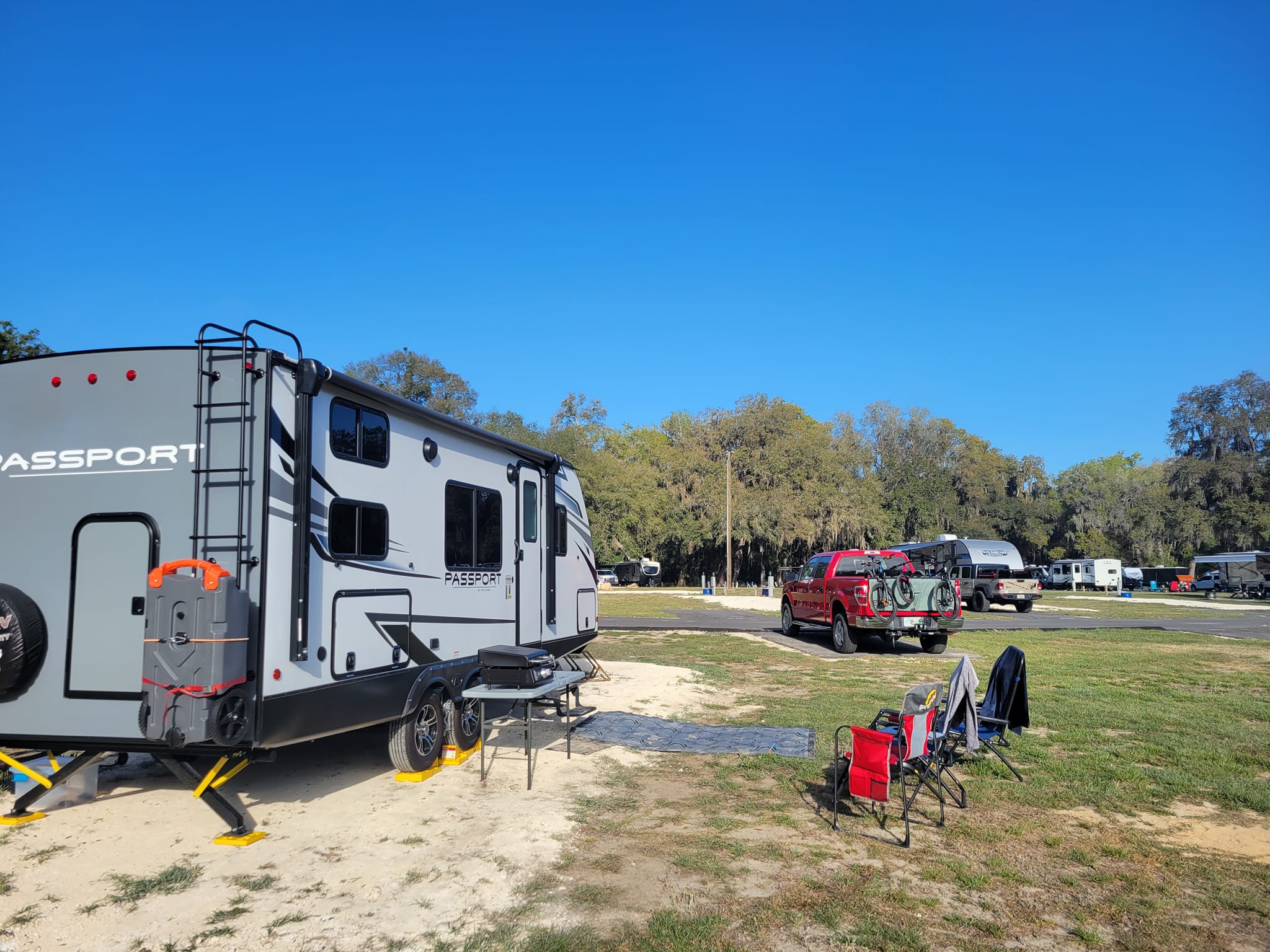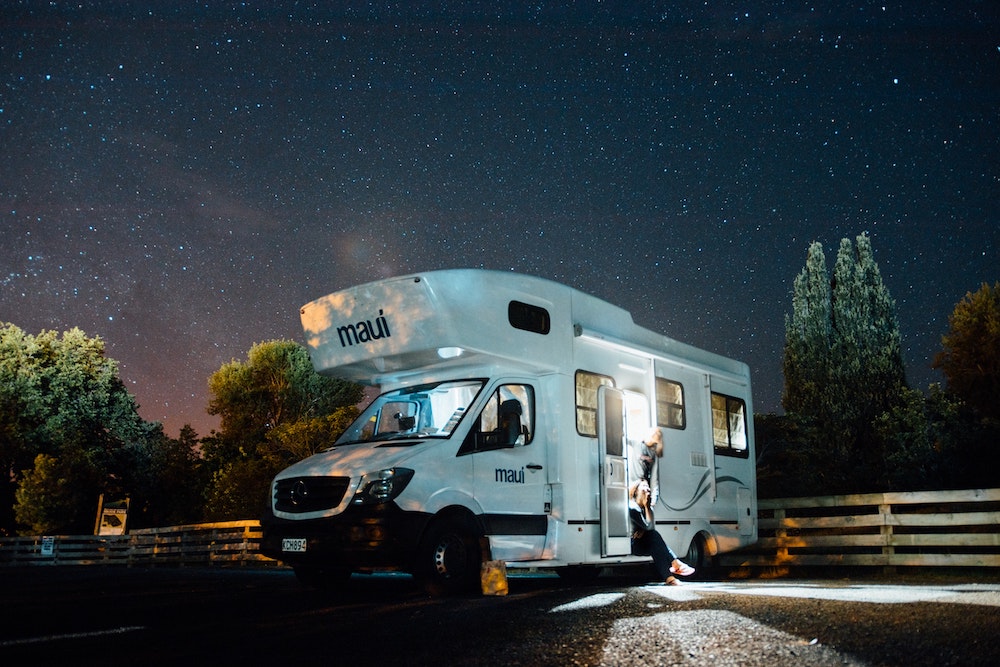
According to Titlemax, Florida is the third state in the United States that spends almost 306 million dollars on RV sales and services per year. An RV, also termed Recreational Vehicle, is a great way to have a solo weekend trip with a place to sleep and rest.
RVs have a huge internal space where the driver can have a bed, toilet, and a kitchen to make breakfast, lunch, or dinner. Additionally, Florida is a beach land with a beautiful sunset. Therefore, every Floridian’s dream is to drive on the beach in an RV and witness the sunset.
A large vehicle like RV also has some major disadvantages; it has the potential to cause significant property damage in case of any road accidents. Therefore, having insurance coverage might be a good backup plan. Is RV insurance required in Florida? Let’s find out!
More About: What Does Allstate Liability Insurance Cover?
Importance Of RV Insurance
Our research says that a good model of RV costs in the range between 30000 to 200000 dollars, depending on your budget. As these vehicles are quite large and very complex to drive and control, it has the potential to collide with certain smaller vehicles.
In simpler terms, the risk of accidents is quite high with RVs, which might lead to huge property damage, major injuries, or even certain deaths. Therefore, nobody would want to go bankrupt after purchasing an RV and not having insurance coverage.
Another advantage of RV insurance is that the process also covers all the interior features. For example, an RV is like your home, where you will live outside your house. The insurance policy will also cover your internal kitchen sink and bathroom if unwanted accidents occur. Obviously, you will have to provide enough evidence to confront the insurance holders.
There might be certain restrictions on the usage of such vehicles. For example, some RV owners are not allowed to drive outside the border of the United States. Owning RV insurance has some disadvantages as well.

Furthermore, the insurance cost also depends on the certain location. If you live on the stranded side, you might not have a good insurance backup.
On the other hand, insurance coverage also depends on the RV cost. So, people with low-cost RVs might get low insurance money compared to the internal damage they have been through. Therefore, one must conduct thorough research before availing oneself of RV insurance.
Luckily, we are here for you. Is RV insurance required in Florida? The later section will answer this question.
Does Florida Really Need RV Insurance?
As we have already mentioned, Florida has the third-highest RV sales and services per year. Also, being a beachside state, the tourist attraction is off the chart. If there are more tourists, there will be a higher probability of accidents.
Additionally, many tourists also hire RVs to drive around the beach seashore and enjoy the beautiful sunset. Apart from hiring, many family garages have at least one RV in storage.
Therefore, with so many RVs to consider, it will be a more than wise decision to have RV insurance for the people in Florida. Recently, the Florida State Law for RV insurance made it clear that every RV owner should have reasonable insurance coverage based on the population and the yearly RV accident statistics.
So, is RV insurance required in Florida? Yes! Therefore, it is time to know the details of the RV insurance coverage.
What Are the Coverages of RV Insurance?
As we have already mentioned above, the insurance coverage also depends on the type of RV you have available. Based on that category, there are mainly three types of vehicles to consider for RV insurance– Class A, B, and C.
Class A RVs are mainly luxurious, with plenty of rooms, multiple bathrooms, and huge space for midnight parties. Normally, the length of such vehicles can reach up to 75 feet. The percentage of insurance coverage is highest when it comes to Class A vehicles.
On the other hand, we have Class B RVs, the smallest of all RVs. This type of RV is specially designed for a single person with a big corridor-type space with three adjoining rooms. You will have a bedside in one corner, and the other corners are for bathrooms, cooking, and other advertising stuff.
The cost of insurance is the least when it comes to Class B vehicles. They are also considered cargo-type vans in some states of the USA.
Finally, Class C RVs are vehicles in which the driving portion of the RV is a standard cargo van, and the camping component extends over the cab area. This class covers fifth-wheel vehicles. Contact an independent agent to find the right RV coverage for your motorhome or camper.
Now that you know all the Classes of RVs, it is time to know the following coverages of RV insurance each class is based on. They are as follows:
Standard RV Insurance Coverage
The standard coverages in RV insurance include:
- Body Injury: This coverage is mainly provided for others who suffered a major accident for their RV driving. In such a scenario, your RV damage is not included in this coverage.
- Sudden Collision: In this coverage, the insurance providers will provide backup for your RV’s damage from a collision on the roadside with other vehicles or other accidental causes.
- Comprehensive: This portion of the coverage does not support any accidental damage. Instead, it accounts for the damage, such as fire hazards, thieves entering the RV, or any tree falling and damaging your RV’s roof.
- Medical Payments: After you experience a major accident in your RV, all the victims needing medical coverage will receive extensive care through this section of the insurance coverage.
- Damage to the Property: Let’s imagine you lost control of your RV, drove through a stranger’s backyard, and damaged their property. This portion will cover any damage related to the renovation of that property.
- Underinsured: If you own a driver that drives your RV, this coverage will provide backup for your driver’s medical costs if he experiences any accident during his working hours. Note that this coverage will only take action if your driver needs more insurance coverage to pay the deductible fees.
- Uninsured: This coverage section will provide insurance money for the passengers or the driver if they do not have any health insurance coverage.
Additional RV Insurance Coverage
RV insurance in Florida also comes with additional coverage to make the people of Florida more comfortable with the insurance policies. Therefore, here are some of the additional RV insurance coverages:

- Content Coverage: If you have any valuable items in your RV cabinet, the insurance providers will carefully examine their existence and provide you with insurance money if they are hardly damaged or unusable.
- Emergency Expenses: Let us paint a picture where your RV’s engine suddenly stops in the middle of a deserted road, and you find no fuel in the tank. In these scenarios, the ’emergency expenses’ insurance section will cover the nearby hotel cost and the equivalent fuel renewal expenses.
- Roadside Expenses: This section mainly covers the towing cost, flat tires, and fuel renewal necessary to tow your RV to the local garage for service.
- Safety Glass Expenses: In case of any natural disasters, such as a flying rock hitting your RV’s windshield hence permanently damaging it, this safety glass expense section will cover the entire cost.
- Towing and Labor Cost: Towing and labor costs are covered if your vehicle breaks down on the road. While your RV is being repaired, you may be reimbursed for hotel stays, rental cars, and meals.
RV Insurance- Registration Process and Costs
There are certain terms and regulations one RV owner must go through before enrolling for RV insurance. First of all, you must have to register your RV in the United States, and then you can continue with the insurance policies.

Registration Process
How to register an RV in the United States council? You will need the authorized bill for your RV purchase. If you have bought your RV from another person, collect the bill and check whether they have it registered.
Once you have the necessary documents, you can go to the DMV to account for the registration process, which normally takes a maximum of 30 days right after you make the purchase.
Additionally, since you are registering your RV in Florida, you will need to carry additional documents to the DMV. They are as follows:
- Exact identification number of your RV.
- Signed bill without registration.
- If the vehicle is bought second-hand, the previous owner’s document.
Furthermore, if your newly purchased RV is registered in LLC or another corporation, the registration under Florida state might be problematic. In that case, you need to contact DMV for other alternatives to carry on with the registration process.
Costs
As we said earlier, the insurance coverage and money will vary depending on the type of your RV and the limit set by a specific insurance company. But, the baseline for insurance money coverage in Florida state is as follows:
- 10000 dollars for any type of property damage, which can lead to own others’ property damage as well.
- 10000 dollars for one person’s bodily injury, which is applicable for one person only.
- If the level of the accident is severe and the people injured are more than one, the bodily injury amount can rise to 20000 dollars.
Depending on the yearly statistics, the average insurance coverage in Florida is given by 1500 dollars which divides into 125 dollars on a monthly basis.
Other Factors Influencing RV Insurance
Despite RV types and the limits set by the insurance company, there are other factors to consider that can influence RV insurance.
- Deductible Fees
A deductible is the amount of money you need to pay for your RV damage before the insurance comes into action. Setting a lower deductible fee will only set more burden on you. Also, deductible fees can vary depending on different insurance providers.
- Driving age and mileage of your RV
RVs that go through a rough phase have a greater mileage, and because of being old, they have a greater probability of sudden breakdown. Therefore, setting up insurance policies on such RVs will be less priority.
- Driver’s driving record and performance
Drivers with a higher record of accidents will receive fewer deductible fees and less insurance coverage. If you wish to drive your RV on your own, make sure to become an expert first.
Frequently Asked Questions
Is it necessary to enroll for RV insurance in Florida?
Yes! Florida has huge traffic jams and a tremendously bad record of RV accidents every year. Therefore, it will be very efficient for an RV owner to enroll for insurance coverage to compensate for any future damage.
Does home insurance cover RV insurance?
Home insurance might cover all your belongings and valuable items available inside the RV. But this particular insurance type will not cover any damage related to your RV.
Do we need to register our RV before applying for insurance?
Yes! It is a necessary step in Florida state authorized by the Florida State Law of insurance.
Does RV insurance cover the RV’s roof damage?
Yes! For any natural disaster or sudden accident that might lead to severe damage to the roof, RV insurance will provide backup money for the repair.
Is RV insurance cost in Florida high?
Yes! There are many RV owners in Florida, so the yearly cost due to RV insurance in Florida is high. In fact, Florida is the third state in the United States that spends almost 306 million dollars on RV sales and services per year.
Conclusion
Florida has had the heaviest traffic over the years, especially when the tourist season starts. Depending on the RV owner statistics, Floridians like to travel alongside the beach in their RVs.
Getting RV insurance is easy, but first, you need to register your vehicle in Florida by going to the DMV. Moreover, we have also found out that RV insurance depends on many factors- some of which are deductible costs, the type of RV, and the limit set by different insurance companies.
Therefore, is RV insurance required in Florida? Next time someone asks you this question, make sure you tell them to get suitable RV insurance as soon as possible.
Mehedi Hasan is an insurance expert with over 6 years of experience in the industry. He has a deep understanding of various types of insurance policies and is skilled at helping clients find the coverage that best fits their needs. In his current role, Mehedi works as a consultant, advising businesses and individuals on the best insurance options for their specific situations.
He is also a frequent speaker at industry events, sharing his knowledge and expertise with colleagues and professionals in the field. Mehedi holds a degree in insurance and risk management and is committed to staying up-to-date on the latest industry trends and developments. In his free time, he enjoys reading, traveling, and spending time with his family.
